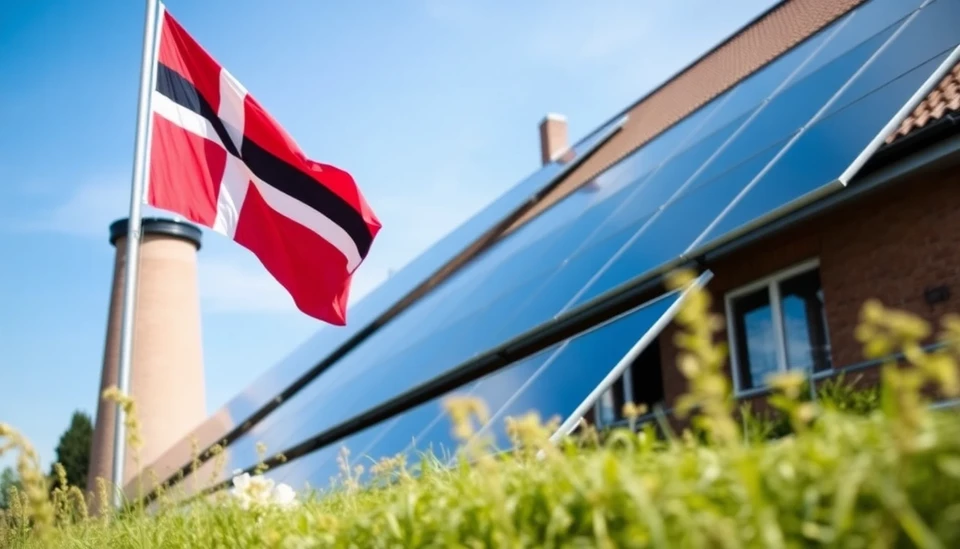
In a dramatic turn of events, the collapse of a major solar energy firm in Denmark has sent ripples throughout the nation’s financial landscape, raising concerns among investors, stakeholders, and financial experts. This unexpected development is turning heads and could potentially lead to significant repercussions not just for the solar industry but for the entire Danish economy.
The solar firm, which had been a prominent player in the renewable energy sector, faced insurmountable challenges that ultimately led to its downfall. With ambitious plans for expansion and a strong footprint in the renewable energy market, the firm was regarded as a trailblazer. However, a combination of factors, including soaring material costs and fierce competition, placed undue pressure on its operations. The inability to adapt to these changing dynamics proved to be too much for the company to handle.
As news of the firm’s insolvency broke, the Danish stock market reacted sharply, with shares in related firms suffering a steep decline. Investors are now grappling with concerns over potential ripple effects across the financial sector. Analysts speculate that banks heavily invested in the troubled company may face write-downs, leading to tightening credit conditions that could stymie growth across the broader economy.
This incident is not only striking for its immediate financial implications but also for its broader significance within the renewable energy sector. Industry experts have expressed fears that this collapse might undermine investor confidence in future renewable energy ventures, potentially stalling innovative projects aimed at combating climate change.
The Danish government has been quick to respond, emphasizing its commitment to supporting the renewable energy sector. Officials have announced plans to meet with industry leaders and financial institutions in an effort to stabilize the situation. They are working collaboratively to devise strategies to mitigate the financial fallout and ensure that the transition to sustainable energy continues unabated.
This incident has sparked debates about the sustainability of rapid growth models in the renewable energy sector. Some experts argue that the prioritization of expansion over financial prudence may have contributed to the firm’s vulnerability. Moving forward, there will likely be increased scrutiny on similar ventures to ensure that they are built on stable financial ground rather than solely on ambitious growth targets.
As the situation develops, the implications of this collapse will likely be analyzed closely by financial analysts, government officials, and industry stakeholders. The collective hope is that the lessons learned will lead to a more resilient framework for the renewable energy sector, preventing future crises and ensuring sustainable growth in Denmark's green economy.
In the coming weeks, more information is expected to emerge regarding the full extent of the collapse and its aftermath. Investors, analysts, and environmental advocates alike will be watching closely, as the outcome may set important precedents for the future of renewable energy financing and investment strategies in Denmark and beyond.
As experts continue to evaluate the situation, the question remains: How can Denmark navigate this turmoil while maintaining its goals toward a sustainable energy future?
#DanishFinance #SolarFirm #RenewableEnergy #EconomicImpact #Investors #Sustainability
Author: Samuel Brooks




